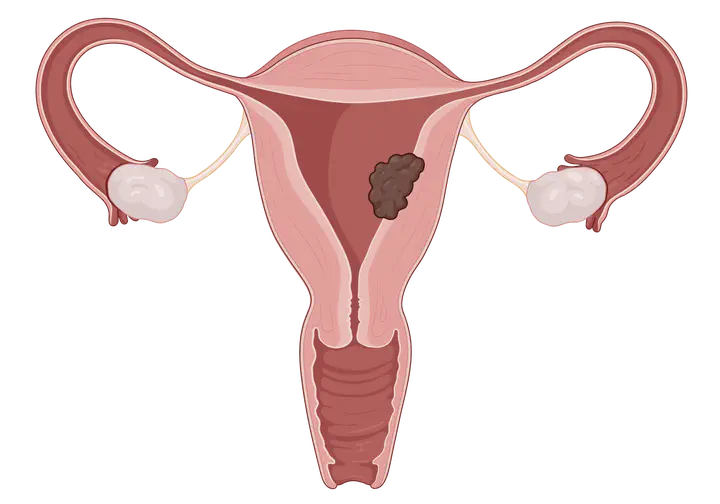My PhD: Chromatin organisation in the cancer of the uterus
 Illustration of endometrial cancer from BioRender.com
Illustration of endometrial cancer from BioRender.comEndometrial, or uterine, cancer affects roughly 9,000 women each year in the UK and has become considerably more common during the past two decades. Although more than 80% of affected women are cured by surgery and post-operative treatments, the prognosis for certain disease subgroups is considerably poorer. Improving this requires a better understanding of the evolution of this disease at a molecular level. We propose to do this by a detailed study of genetic (changes in DNA sequence) and epigenetic (changes other than DNA sequence) perturbations in endometrial cancers of different stages. Using a combination of human tumours, cell lines and experimental models (such as organoids - 3D cell cultures derived from the mouse uterus), we will apply advanced machine learning techniques and state-of-the-art experimental methods to understand the key events in tumour evolution and the underlying biology driving this process. In doing so we ultimately hope to improve prognostication and therapies for patients.